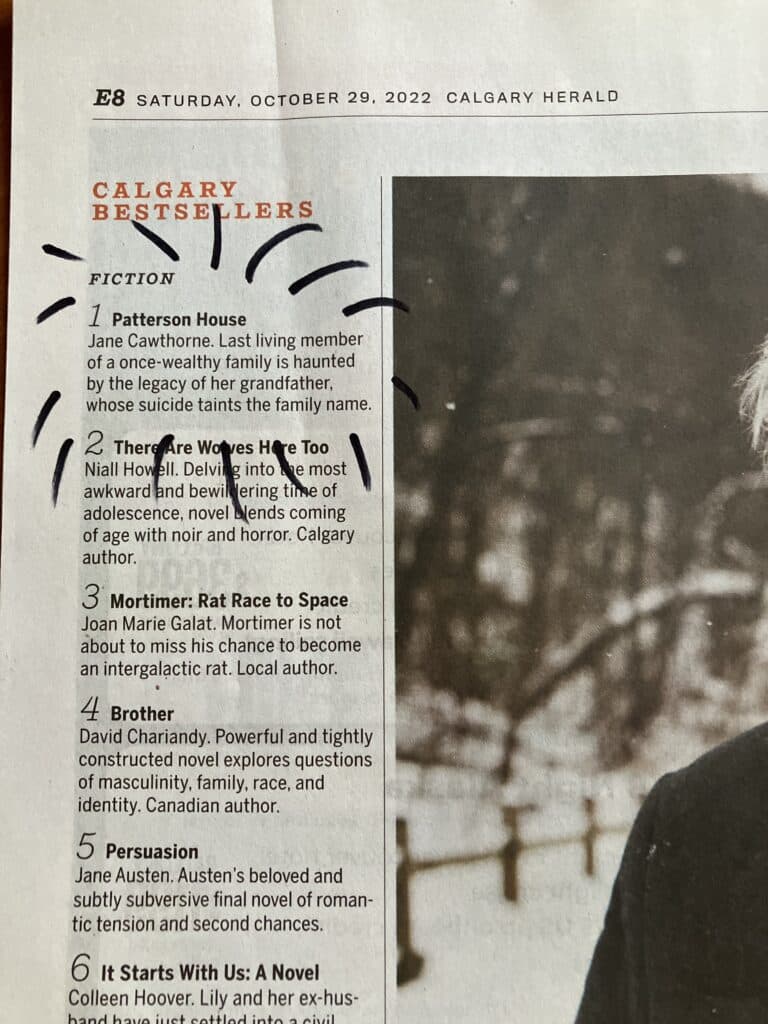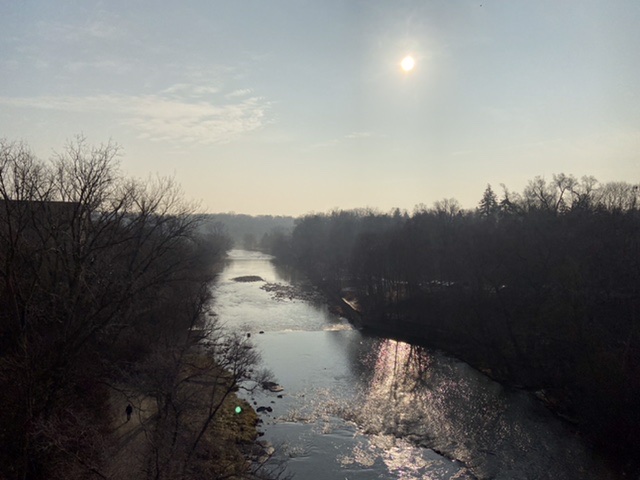Happy New Year. 2018 will be the year I recover from this concussion. I know, I know. I said the same in 2017, and that came and went in a concussed fog. Don’t make promises you can’t keep, says someone in the back of my rattled brain. I’m ignoring that person, choosing optimism and saying this will be the year.
When this happened, way back in 2016, I couldn’t have imagined the time between then and now. My former GP told me dismissively that I would recover in three weeks. So I pretended I was fine and tried to carry on. I pushed and pushed until I couldn’t anymore. I remember thinking, “What is wrong with me?” and going into a blind panic amid the clangour.
What does recovery even mean? It’s a process, not a destination. I know now that it does not mean I will be like I was. There’s no going back. Time only moves forward, and so must I. But I will be something else, somebody closer to normal (whatever that is), somebody who doesn’t worry about falling sideways in the supermarket. I hope I’m somebody who can read quickly and deeply again, who can assimilate information, who can remember, who can write creatively, who can think creatively, who can understand a metaphor, who can ride a bike. I hope I am all of those things. And more. I hope I sleep soundly again.
I have been negative about 2017. The lost year, I call it. But it is time for a reframing. I accomplished something. I pursued my recovery. I followed up every lead on practitioners and treatment and completed every treatment plan given to me. I did puzzles and mazes and built with blocks meant for six-year-olds. I memorized patterns and tested my memory in thirty second intervals and two minute intervals and now a little longer than even two minutes. I filled in the pages of cognitive treatment work books. I budgeted my energy, learning over and over from my mistakes. I wore special glasses and eye patches and learned to see again and to focus and refocus close up and in the distance and every point in between. I regained my lost peripheral vision. And I read, doggedly, even when I couldn’t read, even when I had to use a ruler to follow the lines, even when the words swam on the page and pretended to be words they were not. I read something (anything) every day because I knew that to get my life back, I had to be able to read. And I wrote, little bits, tiny posts on social media, or here on my website. They took forever, but I tried to keep my hand in it any way I could. I launched a book, which I could not have done without Elaine (dear Elaine) but it got done. And then after my brain learned to understand my eyes again, I went to driver rehabilitation and got the go-ahead to drive. I still have huge anxiety in the car, but being told that I have the cognitive capacity to drive is a big step forward.
Creative writing is still elusive. The novel, almost finished in January 2016, remains where it was. Novels are big, you know? There’s so much to remember. So much logic and sequencing and so many words, words, words. Reading remains the second-most difficult task I have. To write, I have to be able to read. They are inseparable tasks. I acknowledge that there is improvement. I don’t need a ruler anymore. The words don’t jump around. I can read for twenty minutes or more most days without getting a headache. I still mix up meanings sometimes. I’m still extremely literal. But it is so much better than it was. Now I’m concentrating on concentrating, trying to build my capacity again.
I had (and continue to have) help. Lots of it. I heap special praise upon my neuro-optometrist, who really, truly, listened to what I was experiencing and didn’t look at me like I was crazy. She had seen this before. It was real. I was so grateful. I have a wonderful new GP, who, although she sees a thousand patients, is always able to make me feel like she has time for me. And I don’t want to forget the massage therapists and physiotherapists, a naturopath, a neuro-psychologist, an occupational therapist and a lawyer who helped me navigate the insurance and the crap I need to do to pay for it all. I thank them all.
I spent too much of my time in 2016 and early 2017 pretending I was fine. I wasn’t honest about how difficult it was to see friends or go on a simple outing. Some friends, close friends, knew and understood. They saw me cry, saw me fall apart, saw me have to disappear for a sleep like a cranky toddler. Thank you. People I know who face chronic illness gave me words and insight that helped. I can’t remember the past twenty months closely enough to give you all proper attribution. You know who you are and I am so grateful to you.
I am so grateful for my husband, whose life has also been curtailed by my brain injury. He has been patient and kind and encouraging. My daughter has too. She also had a big injury in 2016 and she was my recovery buddy for a long time. She’s all better now. She visited for the holidays and one day when I was out with these two cherished souls, I completely lost my equilibrium. My world slid down and to the right where I could not make sense of it. It lasted a long time. Too long. It’s a worry. But there they were, unconcerned about abandoning our plans and ready to take me home instead. It’s good to have people in your life who are with you, no matter what.
And I’m grateful for social media too and the friends I connect with there. Last January was a terrible time for me. I was standing at the edge of the abyss. I fought it back. I cannot overstate the value of social media in helping me back away from the darkness. It allowed me to connect with people without actually having to deal with, well, people, and noise and light. It kept me tethered to the world. To all of you who have sent along an encouraging word, thank you.
So here’s to reframing, to 2018, to health, to family, and to friends.
For the record, I started this post January 1 and it is now January 3. Good God. How can it take this long? Oh yes. Reframing. What matters is I could do it at all. I’m grateful.



